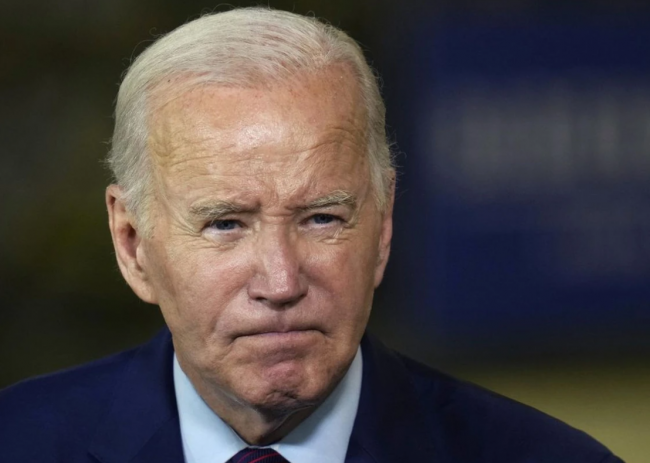Articles Menu

Jan. 25, 2024
B.C. environmental groups are calling on the province’s premier to to pause liquefied natural gas approvals to study their impacts on the climate crisis following a New York Times report that the Biden administration is delaying a decision on a Louisiana liquefied natural gas project.
Peter McCartney, a climate campaigner at the B.C. Wilderness Committee, said the report signals Biden’s plan to halt approvals and “saying no” to fossil fuel infrastructure.
“This is great news for anyone living on planet Earth and we hope this move inspires Premier David Eby and his B.C. NDP government to finally abandon plans to radically expand fracked gas exports,” McCartney said in a news release Wednesday.
In an emailed statement Thursday, a spokesperson for LNG Canada said a reliable source of responsibly produced energy should never be taken for granted.
“Canada’s lower carbon LNG will provide security of supply for global markets that can rely on our country’s natural gas reserves to advance their economies and reduce global GHG emissions, as natural gas replaces higher emitting sources of energy such as coal. With strong Indigenous participation and leadership, we feel that’s a very attractive value proposition,” LNG Canada said in the statement.
The Biden administration is delaying a decision on a Louisiana LNG export project that would be the United States’ largest, the New York Times reported on Wednesday. The report says the White House is directing the Department of Energy to expand a review of LNG export projects to include more climate change criteria, and that it could lead to delays on another 16 LNG projects in the U.S
.
McCartney said shipping LNG to electricity plants in Asia is as bad or worse for the climate than burning coal because leaks throughout the supply chain release methane, which traps far more heat in the atmosphere than carbon dioxide.
Another B.C. environmental group, Dogwood, is also welcoming the report, noting that LNG exports have raised natural gas prices for U.S. households.
“The whole point of these projects is to drive up prices for fracked gas,” said Kai Nagata, communications director at Dogwood in a statement.
“That’s good for oil and gas companies, but not for households who rely on gas for heating and cooking. Pausing new LNG exports is a concrete way to stop the cost of living crisis from getting worse.”
Eby has promised a cap on emissions from oil and gas as part of an “energy action framework” in a bid to lower CO2 emissions by 40 per cent by 2030.
Eby has said the new framework will require new LNG facilities to have a “credible plan” for net-zero emissions by 2030, and there will be an emissions cap on the industry. The government also plans to establish a major projects and clean energy office to fast-track proposals that use clean technologies and create jobs.
In an emailed statement Thursday, B.C.’s Ministry of Environment and Climate Change Strategy said the province is “in a different position” than the U.S. because of its “revitalized and robust” Environmental Assessment Act, which looks at the climate impacts as part of the process with LNG projects.
“The world is heading to a low-carbon future focused on clean energy. With our framework B.C. won’t be left behind – we are working to be a leader in that clean energy future with good jobs for workers,” the ministry said.
Last spring, B.C. environmental groups asked the province to delay planning on the $10-billion Nisga’a-led Ksi Lisims LNG project, which would be B.C.’s second-largest LNG project so that its effects on federal and provincial emissions caps could be considered.
LNG Canada contends the Kitimat project, which is 90 per cent complete, has “the lowest carbon intensity of any large-scale LNG export facility operating in the world today.” Emissions will be 35 per cent lower than the world’s best performing facilities and 60 per cent lower than the global weighted average, the LNG Canada spokesperson said.
In an emailed statement Thursday, B.C.’s Ministry of Environment and Climate Change Strategy said the province is “in a different position” than the U.S. because of its “revitalized and robust” Environmental Assessment Act, which looks at the climate impacts as part of the process with LNG projects.
“The world is heading to a low-carbon future focused on clean energy. With our framework B.C. won’t be left behind – we are working to be a leader in that clean energy future with good jobs for workers,” the ministry said.
Last spring, B.C. environmental groups asked the province to delay planning on the $10-billion Nisga’a-led Ksi Lisims LNG project, which would be B.C.’s second-largest LNG project so that its effects on federal and provincial emissions caps could be considered.
LNG Canada contends the Kitimat project, which is 90 per cent complete, has “the lowest carbon intensity of any large-scale LNG export facility operating in the world today.” Emissions will be 35 per cent lower than the world’s best performing facilities and 60 per cent lower than the global weighted average, the LNG Canada spokesperson said.
[Top photo: File photo of U.S. President Joe Biden. PHOTO BY CHARLES KRUPA /THE ASSOCIATED PRESS]